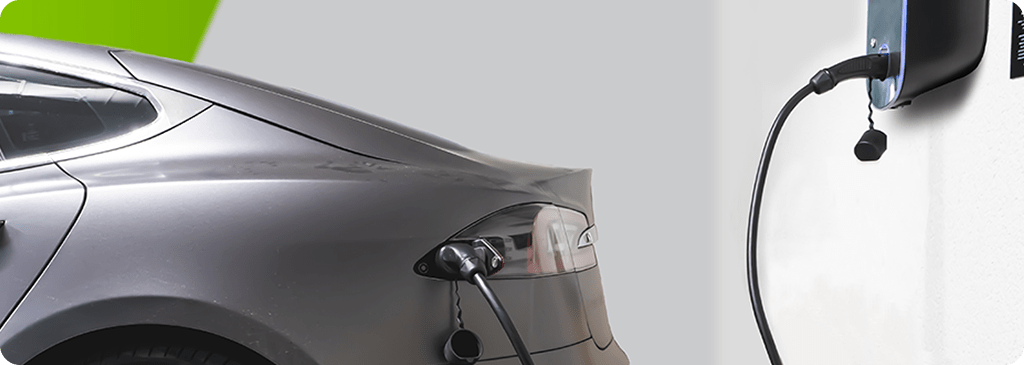Electric cars have been gaining in popularity over the past few years. There are many factors that may motivate you to buy one. It’s not just about exhaust emissions that contribute to climate change. More and more people decide to buy such cars for purely economic reasons. The high purchase price of a car powered by an electric motor may be partially covered by the subsidy, periodic servicing is on average 30% cheaper than in a combustion car, and the cost of driving 100 km when charging the car at home is around PLN 8-15. You also get the opportunity to use lanes reserved for buses and free parking in city centres. However, next to all these positives, there is always the question of charging time. Today we will tell you more about this.
How long does it take to charge an electric car?

In the case of “regular” cars, gas stations can be found everywhere, and filling the tank takes a few minutes, allowing for travelling hundreds of kilometres. It is different with charging the battery. Everyone knows it takes longer, but how much exactly? Unfortunately, there are no unified charging standards on the market, there are different types of connectors and charging stations (in our store you will find cables that fit every charger in Europe!), so the answer is ambiguous: It depends.
What if we charge at home?
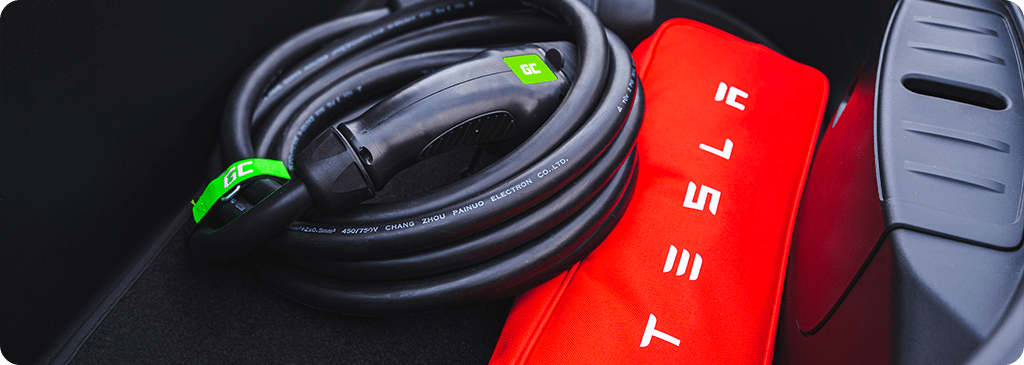
An electric car can be connected to a regular 230 V socket, but this is a fairly inefficient solution. On the example of Tesla Model S, with a battery capacity of 85 kWh, charging from a domestic socket takes as long as 48 hours! This scenario assumes that the battery is completely empty, and after such charging it will be possible to drive about 630 km. For everyday driving around the city, it is enough to charge the car for about 10 hours which will provide a range of 150 km, but many people have much higher requirements, so what to do in such a situation?
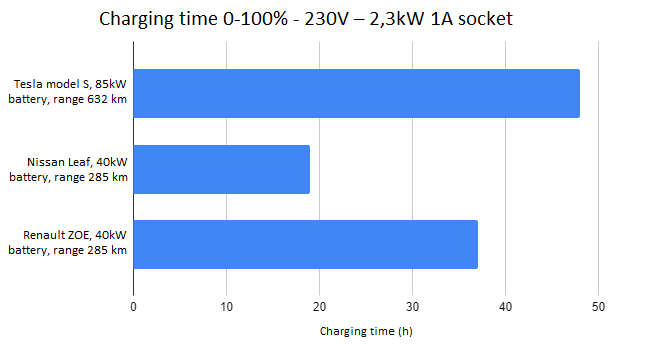
You will need a 400 V power connector
This is a popular red plug that can be found in many garages. It is often used to power machines such as furnaces, boilers and concrete mixers. It allows you to charge with much more power – 7.2 kW. However, in order for charging from such a socket to be safe, you need to invest some money in a power transformer (if the car supports only 1 phase) and a charger, so depending on the condition of the installation, the cost can be even 5-15 thousand. However, this large investment saves a lot of time, because fully charging the battery in the aforementioned Tesla takes about 15 hours.
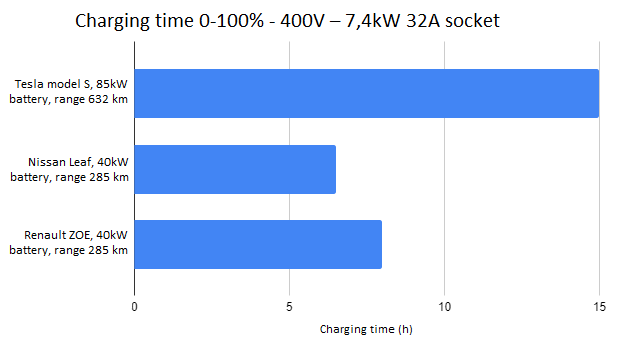
What if you want it even faster?
Unfortunately, this is where the possibilities of ordinary home installations end, you can apply for greater power allocation from your provider, but this entails additional fees. However, commercial solutions will provide you with the fastest charging. Fast charging stations can provide you with a range of 100-150 km within half an hour, which is practically ten times faster than when charging from a regular socket. Unfortunately, in Poland the infrastructure of such chargers is still in its infancy. Compared to our western neighbours, maps of such solutions look like a desert. In the case of longer routes, you often have to go out of your way to find such a station or plan stops in places where you can charge the car with slower methods.
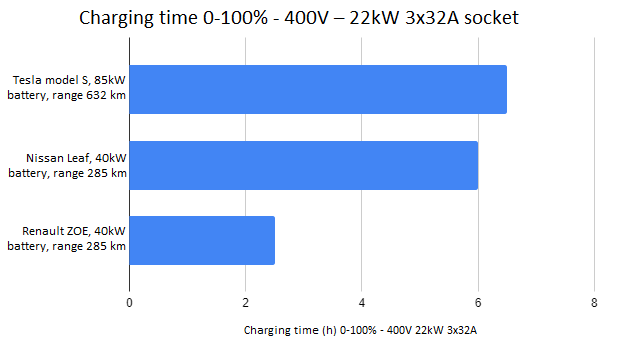
The future is electric

Despite the disadvantages described above, the technology of charging and the batteries themselves are constantly evolving and the time spent on charging your car with electricity will become increasingly shorter. Many companies have also declared large investments in fast charging stations in Poland, which will probably contribute to the popularity of electric cars. Remember that in our store you can find charging cables for the most popular models – you will find them in this category 🙂
Alexandra Smith
Related posts
Most viewed entries
- Electricity in a camper van on holiday – a conundrum easily solve
- Off-grid installation on a plot. Is it worth it?
- Charging your electric car at home without a wallbox
- Inverter – what it is and what it is used for
- Zero VAT on energy storage in the UK possible soon
- Greece sets aside €200 million for photovoltaic subsidies!

